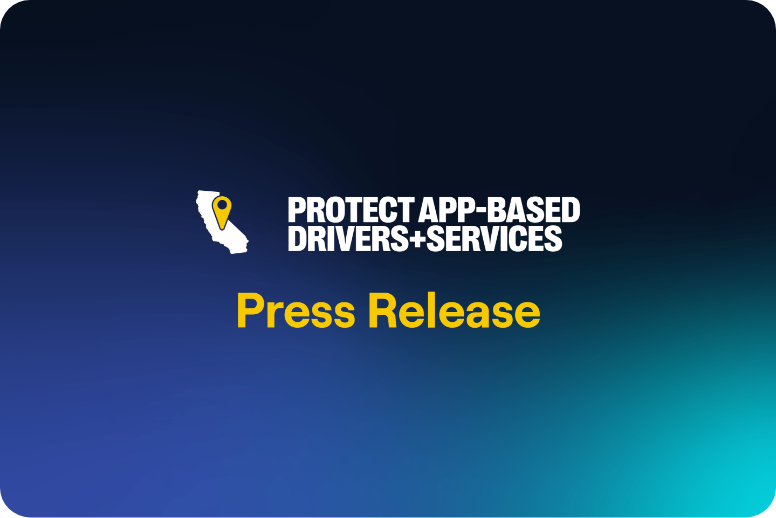By Tiffany Stecker – Reporter, Bloomberg Law
California voters will decide in November whether rideshare drivers can get some of the benefits of employees while remaining independent contractors, a vote that could exempt their employers from the state’s landmark gig worker law.
The initiative, backed by Uber Technologies Inc. and Lyft Inc., grocery shopping services Instacart Inc. and Postmates Inc., and take-out delivery company DoorDash Inc., successfully collected more than the 623,212 verified signatures needed to qualify for the Nov. 3 ballot, the California Secretary of State’s office announced Friday.
If the initiative succeeds, companies that use on-demand contract workers wouldn’t have to add them to the payroll, as required by the new state law known as A.B. 5, but would have to pay them at least 120% of the hourly minimum wage, plus 30 cents per mile to defray expenses. Labor unions say the measure would create a precedent for other technology companies to sidestep labor laws.
“We see this as really pivotal in terms of what happens over the next five years,” said Steve Smith, a spokesman for the California Labor Federation, which opposes the initiative.
Companies backing the initiative already have put more than $110.6 million behind the Protect App-Based Drivers and Services political committee. The Coalition to Protect Riders and Drivers, funded primarily by the California Labor Federation and the AFL-CIO, has banked $690,000 to tell Californians to vote no. The initiative’s supporters secured 1 million signatures by the end of February before the coronavirus pandemic halted signature-collection drives.
Once approved by the electorate, the California Legislature would only be able to change the measure with a seven-eighths majority vote. Companies would be required to subsidize a portion of their gig workers’ health plans, to insure drivers for on-the-job accidents, and protect drivers and riders against discrimination and sexual harassment.
Drivers would be able to work no more than 12 hours in a 24-hour period, would have to go through background checks, and would have to attend safety training. They wouldn’t qualify for paid leave or unemployment benefits.
Crucially, they’d remain independent contractors, something proponents say is essential to maintaining the flexible nature of their work.
“I don’t know of any industry with an employee platform that lets employees work when and where they want,” said Patricia Mulholland, an Uber driver who’s part of the campaign supporting the initiative.
Mulholland, 65, said in a phone interview that she started driving to earn money while caring for her uncle, and can make up to $50 per hour shuttling passengers around the San Francisco Bay Area.
The opposition says the classification of drivers as contractors hurts them. They point to a University of California survey of 862 gig drivers that found that half work more than 40 hours per week and, on average, barely make more than $15 per hour. About one in five lacked health insurance. “The lion’s share of drivers would actually get kind of screwed over by this,” Jerome Gage, a Los Angeles-based full-time Lyft driver for five years, said in a phone interview. Gage is a member of the Mobile Workers Alliance, which supports AB 5.
California’s nonpartisan Legislative Analyst’s Office has found that classifying drivers as employees would lead to fewer drivers on the rideshare platforms.
The Latest News

Opinion
I’m an Instacart driver: California Supreme Court must protect my job
By Stephanie Whitfield It may sound dramatic to say that app-based driving saved my life, [...] Read more
News
As Prop. 22 heads to California Supreme Court, support doesn’t break along ideological lines
By Bob Egelko Proposition 22, the 2020 ballot initiative sponsored by Uber and Lyft that [...] Read more